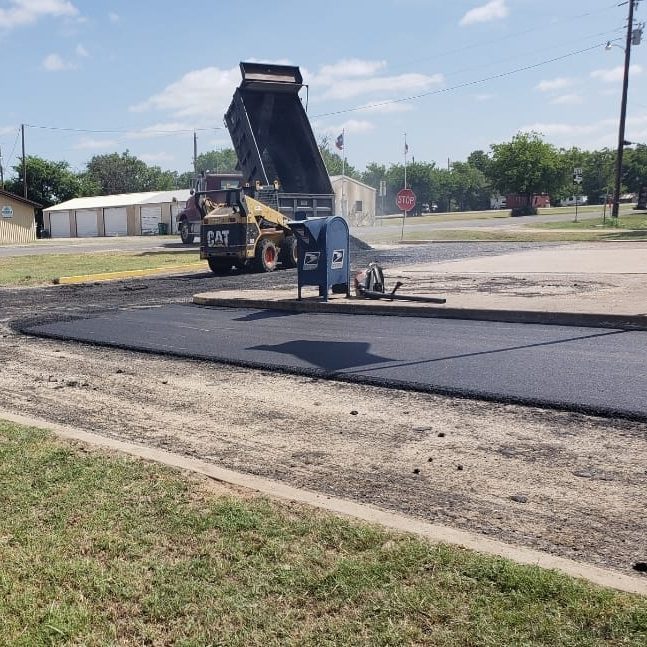Checking Out the Various Sorts Of Asphalt Paving and Their Benefits
The landscape of asphalt paving incorporates a range of kinds, each engineered to resolve particular needs and environmental factors to consider. From the robust characteristics of Warm Mix Asphalt to the environmentally friendly attributes of Recycled Asphalt Pavement, understanding these alternatives can substantially influence job end results. Advancements such as Warm Mix Asphalt and Porous Asphalt introduce extra layers of performance and sustainability. As we explore these different paving remedies, the nuanced advantages they provide might stun you and potentially change your technique to future paving tasks.
Hot Mix Asphalt
When thinking about the most efficient leading options, warm mix asphalt (HMA) attracts attention as a premier choice for many applications (paving). HMA is a versatile paving material known for its resilience, versatility, and general performance. It is created by heating asphalt binder and combining it with aggregates at high temperatures, ensuring an uniform mixture that can withstand various ecological problems
Among the main advantages of HMA is its ability to provide a smooth, skid-resistant surface, boosting safety and security for automobiles and pedestrians alike. Furthermore, HMA displays outstanding resistance to deformation, making it ideal for high-traffic locations such as freeways and auto parking great deals. Its versatility to different environments additionally adds to its widespread usage.
The setup process of HMA is relatively fast, enabling efficient job completion with minimal disturbance to web traffic. Moreover, it can be reused, minimizing waste and promoting sustainability within the building and construction market. On the whole, warm mix asphalt remains a leading choice for leading experts as a result of its durable performance attributes and long-term cost-effectiveness, making it a reliable option for various framework needs
Cozy Mix Asphalt
Warm mix asphalt (WMA) uses an innovative option to hot mix asphalt, supplying comparable benefits while calling for lower manufacturing temperature levels. Normally produced at temperatures in between 190 ° F and 250 ° F, WMA technology lowers energy usage and greenhouse gas emissions during production, making it a more eco-friendly option.
This adaptability can lead to improved compaction and overall resilience of the asphalt surface. Furthermore, WMA can be made use of in numerous applications, varying from freeways to residential driveways, without compromising performance.

The consolidation of additives or modified binders in WMA contributes to its enhanced homes, making sure that it satisfies or goes beyond efficiency criteria. In addition, WMA's minimized thermal effect during production can decrease the chance of damages to the surrounding setting, making it an attractive option for sustainable paving techniques.
Cold Mix Asphalt
Cold mix asphalt is a functional paving remedy typically made use of for momentary repairs and low-traffic areas. This sort of asphalt is created at ambient temperature levels, making it a convenient option for fast repairs and tasks where traditional warm mix asphalt might not be feasible. The blend typically consists of asphalt binder, accumulation, and additives, enabling it to continue to be workable for a prolonged duration.
Among the primary advantages of cool mix asphalt is its ease of application. It can be set up without customized tools, making it available for smaller sized service providers and DIY lovers. In addition, cool mix can be applied in different weather, which is particularly beneficial for urgent repair service demands.

It might not supply the same long-term durability as warm mix asphalt, its quick application and adaptability make it a superb selection for short-term services and low-traffic applications. Overall, cool mix asphalt stays a practical alternative in the asphalt paving landscape.
(read the post)
Porous Asphalt
Permeable asphalt is an ingenious paving service designed to boost stormwater monitoring and minimize surface drainage. This kind of asphalt features an unique framework that integrates interconnected voids, permitting water to permeate through the surface area and into the underlying layers. By facilitating all-natural drain, permeable asphalt assists mitigate the threat of flooding and reduces the burden on metropolitan stormwater systems.
One of the key benefits of permeable asphalt is its capability to improve water top quality. As stormwater filters with the sidewalk, contaminants and debris are caught, reducing the variety of contaminants that go into local waterways. This adds to healthier ecosystems and supports conformity with helpful site environmental laws.
Furthermore, permeable asphalt can enhance the durability of the pavement itself. By minimizing water buildup externally, it decreases the potential for freeze-thaw cycles that can bring about cracking and degeneration. Furthermore, the minimized demand for conventional stormwater administration framework can result in expense financial savings for municipalities and designers.
Recycled Asphalt Sidewalk
(check it out)Recycled asphalt sidewalk (RAP) represents a lasting strategy to street building and construction and upkeep that benefits both the setting and the economy. By reusing existing asphalt materials, RAP minimizes the need for new basic materials, which consequently preserves natural resources and reduces ecological influence. This technique lowers energy usage and greenhouse gas discharges connected with the manufacturing of new asphalt.
The incorporation of RAP into new pavement blends can additionally bring about significant cost savings. Professionals can take advantage of recycled products to minimize general task expenditures, making it a financially sensible alternative for municipalities and private developers alike. Additionally, RAP offers comparable performance characteristics to virgin asphalt, ensuring sturdiness and durability in road surfaces.
RAP's versatility permits it to be made use of in numerous applications, consisting of highways, car park, and domestic driveways. By enhancing the structural integrity of existing sidewalks, RAP adds to enhanced safety and smoothness of highways.
Verdict
To conclude, the varied kinds of asphalt paving each offer distinctive advantages tailored to details needs. Hot Mix Asphalt masters resilience and quick installment for high-traffic areas, while Warm Mix Asphalt boosts sustainability with reduced power usage. Cold Mix Asphalt works as an affordable choice for urgent fixings, Porous Asphalt successfully manages stormwater, and Recycled Asphalt Sidewalk promotes ecological responsibility. Jointly, these paving remedies contribute to efficient, green methods in the construction market.